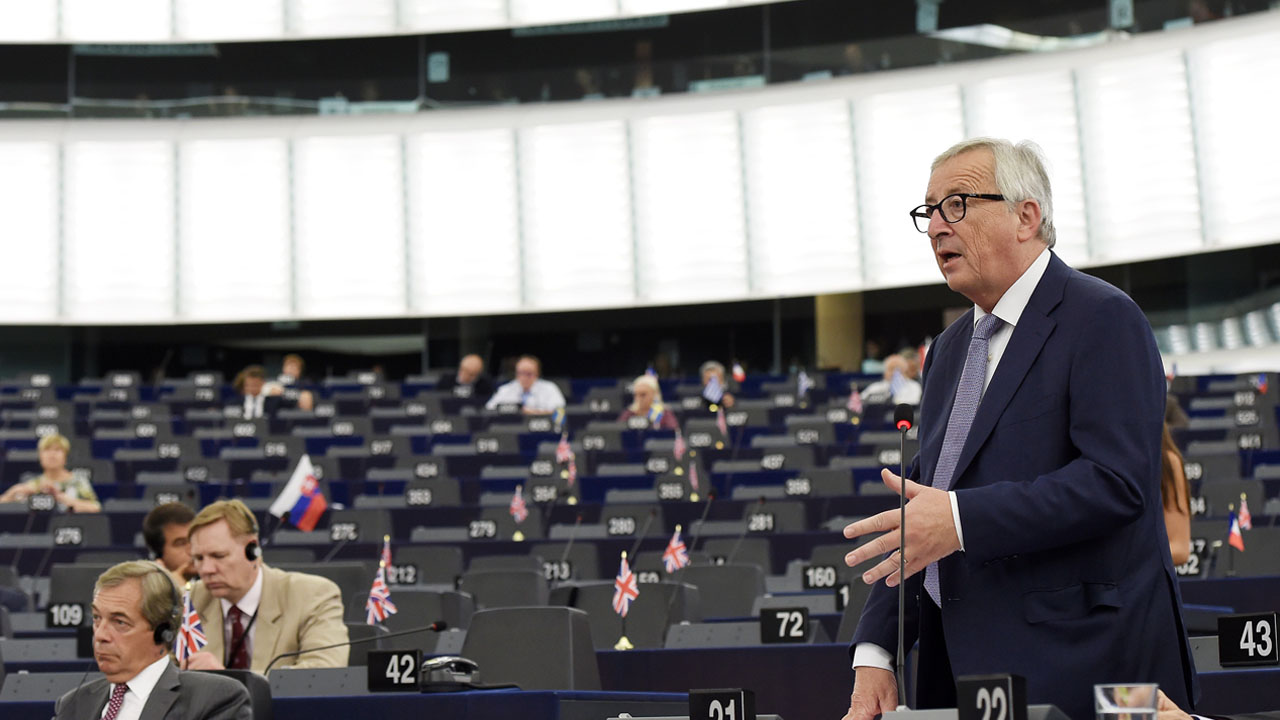
Aides insist Juncker’s flagship address to the European Parliament in Strasbourg on Wednesday will be no farewell swansong, but will set out a strong reforming vision for his last 12 months.
The speech comes against a backdrop of host of crises of varying degrees of intensity, from increasingly urgent Brexit negotiations to the festering row over how to deal with migrants.
Lawmakers from the mainstream centre left and right parties will be looking to Juncker to help combat or stem a tide of euroscepticism before European elections next May.
With populist parties now sharing power in Italy, Austria, Hungary and Poland, and the far-right making gains in Sweden at the weekend, the mood among liberals and federalists is anxious.
This is a far cry from the optimism of Juncker’s speech a year ago, when he boldly declared that “the wind is back in Europe’s sails” — despite the shock Brexit vote.
But Juncker’s chief spokesman Margaritis Schinas insisted he would not flinch at the finish.
“We are a long way from macabre terms like ‘testament’,” he said recently.
“For the last stretch we are determined to follow a golden rule of politics: when you have a political mandate you start strong and you finish strong.”
As part of its plan to tackle migration — and thereby spike the guns of the populists — the commission is expected to announce plans to beef up the Frontex border agency with 10,000 guards by 2020.
Crisis after crisis
From the very start of its mandate in 2014, the Juncker commission has faced unexpected challenges, most notably the 2015 migrant crisis — the biggest of its kind in Europe since World War II.
Britain’s decision to become the first country to quit the EU has also forced the Commission to use up time negotiating a divorce settlement with a weak government in London.
Maria Joao Rodrigues, deputy head of the centre-left Social Democrats group in parliament, said it had been “a legislature full of new challenges on top of the ones that were already there.”
The growing divide between east and west has also become more of a problem, as Hungary and Poland have taken an authoritarian turn.
The commission launched unprecedented disciplinary proceedings against Poland in December over reforms that Brussels said amounted to a threat to the rule of law.
After Juncker’s speech, the parliament will debate whether to call for Hungary to face the same procedure — with hardline Prime Minister Viktor Orban to present his defence in an address to MEPs.
There have long been calls to reform the EU’s asylum rules, particularly from countries where most migrants arrive — Italy, Greece and Spain — but little has been achieved.
At a summit in June, under pressure from the new anti-immigration and eurosceptic government in Rome, EU leaders thrashed out a new strategy for dealing with migrants, proposing to assess would-be arrivals outside the bloc, but the proposals have yet to be translated into action.
The commission must also respond to the mounting worries of European leaders and MEPs as the May 2019 elections approach, that of disinformation spreading on social media and the danger of deliberate manipulation by outside actors, notably Russia.
[ad unit=2]



